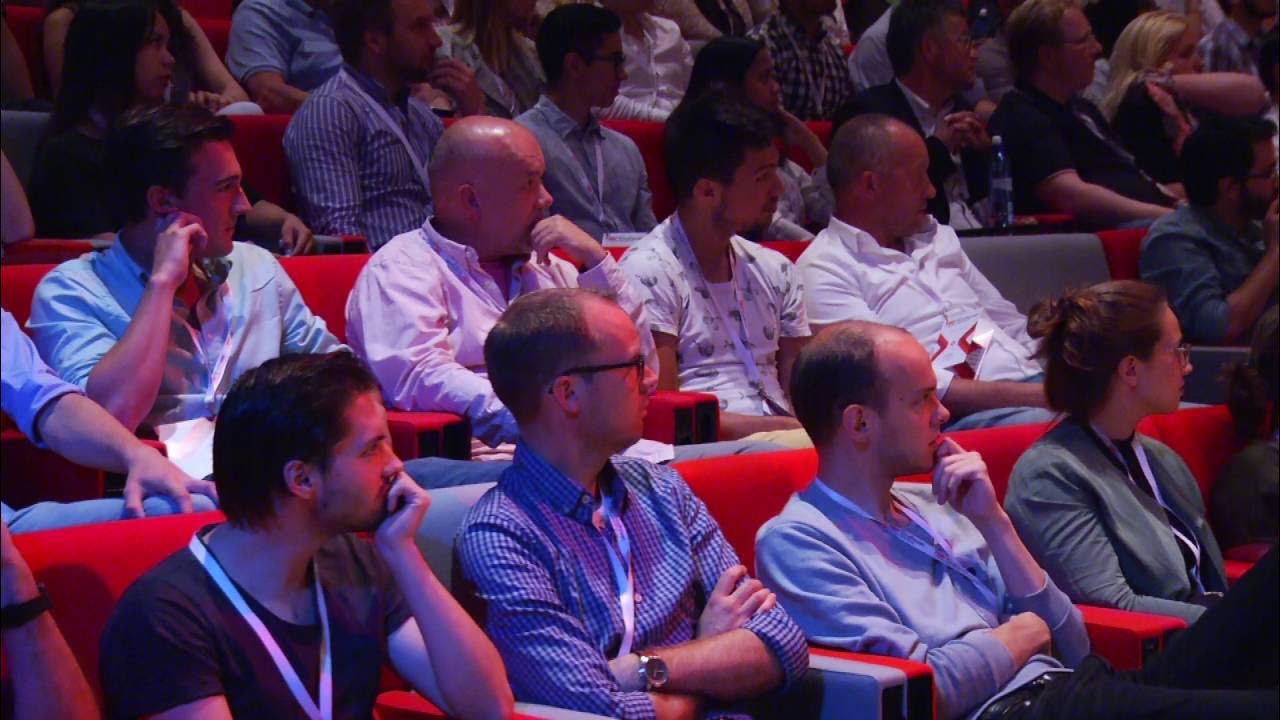How to Use Storytelling in a Speech | Public Speaking
Summary
TLDRIn this video script, the speaker emphasizes the power of storytelling in presentations, encouraging speakers to incorporate personal anecdotes into every key point. The speaker explains that storytelling is a natural human skill, not reserved for the 'naturally gifted.' Through a personal story about making a media mistake, the speaker illustrates the importance of learning from experience and highlights that effective communication is a learned skill. By using stories, presentations become more memorable and impactful, making complex concepts easier to understand and connect with the audience.
Takeaways
- 😀 Storytelling is a natural human skill that everyone possesses, and it can be used effectively in presentations.
- 😀 Don’t feel pressured to begin or end a presentation with a grand story; use a relevant story for each key point you want to make.
- 😀 A story in a presentation should focus on a problem, how it was felt, and how it was resolved to make it relatable and memorable.
- 😀 People often discard storytelling when giving formal speeches, but it is crucial to keep those personal stories in the presentation.
- 😀 Storytelling is not about perfection; it's about communication and sharing experiences in a relatable way.
- 😀 A story doesn't need to be long; even a brief two-minute story can make a significant impact in illustrating a key point.
- 😀 Using stories in presentations helps the audience remember the message more effectively compared to dry, fact-based communication.
- 😀 Even executives, who may not be comfortable with public speaking or media interaction, can benefit from storytelling to make their points clear and memorable.
- 😀 The speaker uses a personal example to show how media communication is a learned skill, emphasizing the value of learning from one's mistakes.
- 😀 Stories should be integrated naturally into the presentation without announcing them as ‘stories’—they should flow seamlessly with the content.
Q & A
Why do many people struggle with incorporating storytelling into presentations?
-Many people feel that they aren't 'natural born storytellers' and believe storytelling requires grand narratives, which leads to anxiety or confusion when trying to include it in presentations.
What does the speaker mean when they say 'bologna' in response to the idea that people are not born storytellers?
-The speaker disagrees with the idea that storytelling is an innate skill. They emphasize that storytelling is a natural form of communication for everyone, and anyone can use it effectively in presentations.
What is the key to using storytelling effectively in a presentation?
-The key is not to focus on starting or ending with a grand story, but to use a relevant story for every major point you want to make in the presentation. This helps make each point memorable.
How does the speaker define a story?
-A story, according to the speaker, is simply a conversation where you describe a problem you faced, how you felt, and how it was resolved. It's a relatable, personal account.
How do people typically fail when trying to use storytelling in formal settings like speeches or presentations?
-People often abandon the storytelling approach when giving a formal presentation, thinking it's unnecessary or out of place. This leads to less engaging and memorable communication.
Can you explain the personal story shared by the speaker to illustrate the importance of storytelling?
-The speaker shares a story from their time as an aide to a member of Congress. They mistakenly gave a vague response to a reporter, which resulted in a quote that cost them their job. The story illustrates how communication, especially with the media, is a learned skill and that storytelling can help clarify and humanize complex ideas.
What lesson did the speaker learn from their own mistake in dealing with the media?
-The speaker learned that mistakes with media communication can be costly, and that being prepared and clear in your responses is essential. It also taught them that media skills are developed through experience and practice.
How does the speaker reassure the audience that they can improve their communication skills?
-The speaker reassures the audience by referencing a quote from Warren Buffett: 'Smart people don’t learn from their mistakes; they learn from other people's mistakes.' The speaker emphasizes that anyone can become great at media interviews with practice and by learning from others’ experiences.
How does storytelling help in media training, according to the speaker?
-Storytelling in media training helps convey complex points in a relatable way. By sharing personal stories, the speaker can illustrate key lessons and make the message more memorable, as seen in the example from their own career.
Why does the speaker say storytelling is important for making points memorable in presentations?
-Storytelling is important because it transforms abstract or complex points into relatable, human experiences. This approach helps the audience connect emotionally and makes the content easier to recall later.
Outlines

Esta sección está disponible solo para usuarios con suscripción. Por favor, mejora tu plan para acceder a esta parte.
Mejorar ahoraMindmap

Esta sección está disponible solo para usuarios con suscripción. Por favor, mejora tu plan para acceder a esta parte.
Mejorar ahoraKeywords

Esta sección está disponible solo para usuarios con suscripción. Por favor, mejora tu plan para acceder a esta parte.
Mejorar ahoraHighlights

Esta sección está disponible solo para usuarios con suscripción. Por favor, mejora tu plan para acceder a esta parte.
Mejorar ahoraTranscripts

Esta sección está disponible solo para usuarios con suscripción. Por favor, mejora tu plan para acceder a esta parte.
Mejorar ahoraVer Más Videos Relacionados

How to rock the stage - public speaking and presentation skills you can master

How to present to keep your audience’s attention | Mark Robinson | TEDxEindhoven

OpenClassrooms Course: Public Speaking - TEASER

5 Storytelling Tips: How to Tell Great Stories When Speaking To An Audience

世界中の有名な成功者、インフルエンサー達が伝える「書くと、夢が現実化する習慣」ジャーナルの驚くべき効果

4 Tips To IMPROVE Your Public Speaking - How to CAPTIVATE an Audience
5.0 / 5 (0 votes)
